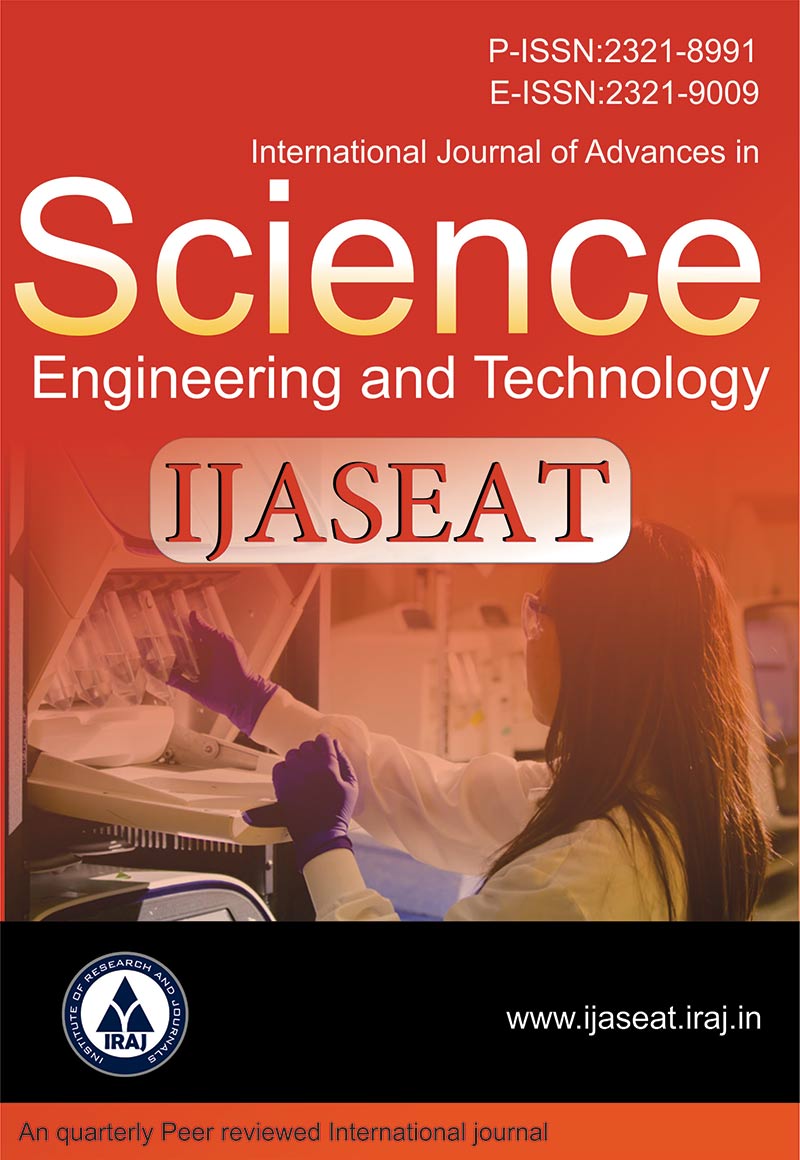Publish In |
International Journal of Advances in Science, Engineering and Technology(IJASEAT)-IJASEAT |
 Journal Home Volume Issue |
||||||||
Issue |
Volume-4,Issue-3 ( Jul, 2016 ) | |||||||||
Paper Title |
Targeting Efficacy Of Chitosan Nanoparticles Of Sn-38 For The Treatment Of Colorectal Cancer | |||||||||
Author Name |
Shilpi Prasad, J.S. Dangi | |||||||||
Affilition |
SLT Institute of Pharmaceutical Sciences, Guru Ghasidas Vishwavidyalaya, Bilaspur, Chhattisgarh, India, 495009. | |||||||||
Pages |
128-131 | |||||||||
Abstract |
Colorectal cancer is the third most common cancer in United States. It starts in the colon and may spread to the rectum. In the present research polymeric nanoparticles of SN-38 was prepared by polyelectrolyte complexation method. Its physicochemical characterization was done by Fourier transform Infrared spectroscopy and Differential Scanning Calorimeter for any incompatibility, Malvern Zeta Sizer for particle size and zeta potential, TEM and SEM images for surface morphology. In vitro release studies were conducted in simulated gastrointestinal fluids for 48 hrs by dialysis membrane method. Particle size, drug entrapment and drug loading were taken as responses for optimization of nanoparticles. In vivo distribution studies were performed in rats to see the targeting potential of nanoparticles after oral administration of SN-38 loaded nanoparticles tagged with Nile red in rats. The optimized nanoparticles were found to be spherical, having positive zeta potential, and particle size between 190-250 nm. The entrapment efficiency was nearly 75% and drug loading was 11.1%. In vitro release in simulated gastric fluids showed maximum release in colonic fluid as compared to gastric and intestinal fluid. In vivo distribution studies show that Nile red tagged nanoparticles reached colorectal region and not other parts of the body after 4 hrs of oral administration. Thus they are not cytotoxic to other organs and these nanoparticles of SN-38 can be delivered orally for the treatment of colorectal cancer. Keywords- SN-38, polymeric nanoparticles, colorectal cancer, polyelectrolyte complex | |||||||||
| View Paper | ||||||||||